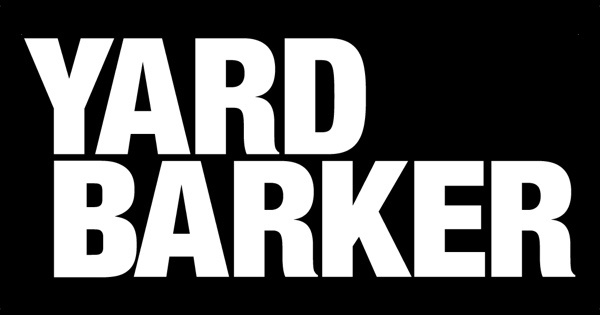Copyright newyorker

The Tech Coup by Marietje Schaake Technology has been tangled up in modern life for a long time, but the entwinement of Big Tech, as an industry, with our daily habits—everything from tracking friends to hiring cabs—is new. Schaake, a Dutch politician and a former European Parliament member, seeks to shift the spotlight of accountability “from Big Tech’s scandals to the systematic erosion of democracy.” Even when the industry is behaving well on its own terms, she thinks, it’s going against democratic practice. That’s just how its incentive structure works. Schaake is not a finger-wagging outsider—while an E.P. member, she worked on a cyber-policy commission, and she is currently a director at Stanford’s Cyber Policy Center—and she has a wide and largely sympathetic view of the dynamics that she describes. “In many ways, Silicon Valley has become the antithesis of what its early pioneers set out to be: from dismissing government to literally taking on equivalent functions; from lauding freedom of speech to becoming curators and speech regulators; and from criticizing government overreach and abuse to accelerating it through spyware tools and opaque algorithms,” she writes. The task now is not to resist the innovation business but to insist on regulating its behemoths, trapped by their own momentum, back to “human scale” interests. Despite its lurid title, “The Tech Coup” is one of the most informed and sensible assessments of the tech landscape I’ve read.—Nathan Heller American Gold Digger by Brian Donovan When the playwright Avery Hopwood titled his 1919 play about three Manhattan chorus girls struggling to make ends meet “The Gold Diggers,” Broadway producers begged him to change the name. Audiences, they protested, would expect a play about hardscrabble panhandlers in the American West, not saucy minxes looking to score a rich husband . . . or someone else’s. (Indeed, a Variety review of the play’s début had to clarify that “the piece does not concern the mining of precious metal.”) At the time, “gold-digger” was still merely dressing-room slang, used playfully between pretty underpaid showgirls. Among them, the term was a cross between a compliment and a word of encouragement: “Girl, get that bag,” avant la lettre. In “American Gold Digger,” Donovan, a sociologist, traces how the phrase entered the broader lexicon and why it stuck. He argues that, as divorce rates rose in the twentieth century, a veritable moral panic over alimony ensued; a divorcée was often deemed a “parasite woman.” There was no equivalent term for ex-husbands who dodged alimony by setting up shell companies and relocating to “alimony colonies,” towns near New York where they could evade being served with writs. They were just “men.”—Jennifer Wilson Seasonal Associate by Heike Geissler The unnamed narrator of Geissler’s novel, first published in German in 2014, is a writer and translator in Leipzig who takes a job at an Amazon fulfillment center in advance of the winter holidays. The work—in a way, a series of encounters with random elements of one-click consumerism, including coloring books and marketing guides for dentists—is tedious, repetitive, and demoralizing. The workplace is literally and emotionally cold; the corporate culture, such as it is, treats employees as disposable and generic. This is a business story only in the most banal sense, which is what makes it subversive and quietly thrilling. Even within the bowels of Amazon, a paragon of brutal efficiency, people flirt, fantasize, find camaraderie. (That’s not to say that the book is uplifting.) The narrator’s fellow-laborers are “fun people, all of them with subtext, and all of them would rather be somewhere else.” As her contract winds along, Geissler’s narrator briefly entertains what resistance might look like: damaging goods, withholding items, misclassifying orders to make them late, sprinkling dust in books—just the bad ones, she clarifies—and inserting insulting Post-its into packages. There’s a delight in the prospect of disobedience, but the reverie also serves as a reminder of the workers’ necessity, humanity, and quiet potential for power.—Anna Wiener Empire of the Elite by Michael M. Grynbaum This is, in a way, an anti-business book: the story of a time in which the publishing company Condé Nast (which has owned this magazine since 1985) was dedicated less to making money than to spending it. Grynbaum, a reporter at the Times, details the period from the eighties to the early two-thousands, during which the publishing heir Si Newhouse nurtured a coterie of publications, including Vogue and Vanity Fair, that “told the world what to buy, what to value . . . even what to think.” They did so by embracing extravagance as a matter of principle. Yet even as the Newhouse ethos scorned petty matters of dollars and cents, it embraced the theatre of business—of money and power, of wheeling and dealing. (The inspiration for “Sex and the City” ’s Mr. Big was Candace Bushnell’s onetime boyfriend Ron Galotti, a Condé executive.) The drama reaches its crescendo with Portfolio, a business magazine that launched on the eve of the Great Recession, paid Tom Wolfe a rumored twelve dollars a word, and hired a live elephant for a photo shoot rather than use a stock image. “Empire of the Elite” captures the inexorable power of money, whether it’s a matter of fantasy or economy.—Molly Fischer



